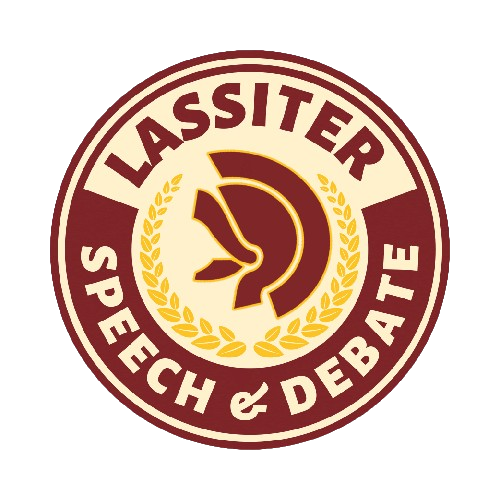Thank you so much for volunteering to judge at Speech and Debate Tournaments. Part of how you will judge will be determined by your own personal experience and style, but of course, what’s most important is attempting to be as unbiased as possible in adjudicating speeches and debates. In debates, students must switch sides often in the tournament; decisions should be based on the better arguments. Below you’ll find the resources to help you adjudicate speech and debate rounds. Remember that ultimately, you want to be the kind of judge that you would want your student to have in the back the room. If you have any questions, feel free to reach out to either coach working the tournament.
Resource Outline
Getting Started (tabroom accounts, contact information request, and judge training)
Tournament Judging (judge expectations at tournaments)
Coach Contacts
Getting Started
FIRST - Create a Tabroom Account (this enables you to access your online ballots); THEN COMPLETE THE THREE STEPS BELOW
go to tabroom.com
click on “sign up”
scroll down to “Non-NSDA Members”
HIGHLY RECOMMENDED – complete the “phone number” and “cell provider” links; you will receive text updates related to your rounds if you do this
you DO NOT need to “link” your account.
Contact Information – please email contact information to jonathan.waters@cobbk12.org
Email address used to create tabroom.com account
Cell Phone Number
Judge Training - REQUIRED
Level 1 Judge Accreditation - NSDA Judge Accreditation system; Level 2 Judge Accreditation & multicultural competence suggested
Instructions for entering ballots in tabroom.com.
Judge Training - ENCOURAGED
Level 2 Judge Accreditation - NSDA Judge Accreditation system
Multicultural Competence - NSDA Judge Accreditation system
Tournament Judging
When assigned a round you will receive a text and/or an email letting you know the competitors for the round and its location.
You should make sure to report to the round location about 5-10 minutes before the round is set to begin. Students should not enter rooms without you being present, so arriving early allows them time to set up before the round actually begins.
When everyone is present, make sure to hit “START ROUND” on your ballot.
You should keep time for the debate and speech rounds. (Speech & Debate Round Times)
Take notes during the round.
When the round ends, enter your decision into tabroom.com. Make sure to provide as much feedback as possible.
Additionally, after the round is over:
For Debate, after you have entered your decision:
i. Thank the debaters for participating.
ii. Disclose your decision. And provide a reason for that decision.
iii. Give a complement sandwich to each competitor. (I like when you did x. I think y could have been done a bit better. I also liked z.)
For Speech, you do not disclose. Some competitors may leave the room early if they are double entered.
i. If they are still in the room, you can thank them for participating but avoid giving indications about how they ranked in the round.
NOTE: Computers randomly assign judges to each round, so you may be used a lot, or you may not be used at all. It could also depend on the number of students that our school brings to the tournament because you will not be asked to adjudicate rounds that contain students from your student’s school. There can be a significant amount of down time for you as a judge while rounds are happening if you are not assigned one, so bringing along books to read or other material to engage with is recommended. Each tournament usually has a judges lounge which can sometimes have a few breakfast items, snacks throughout the day, and a provided meal. These come at the expense of the tournaments so quality can vary.

